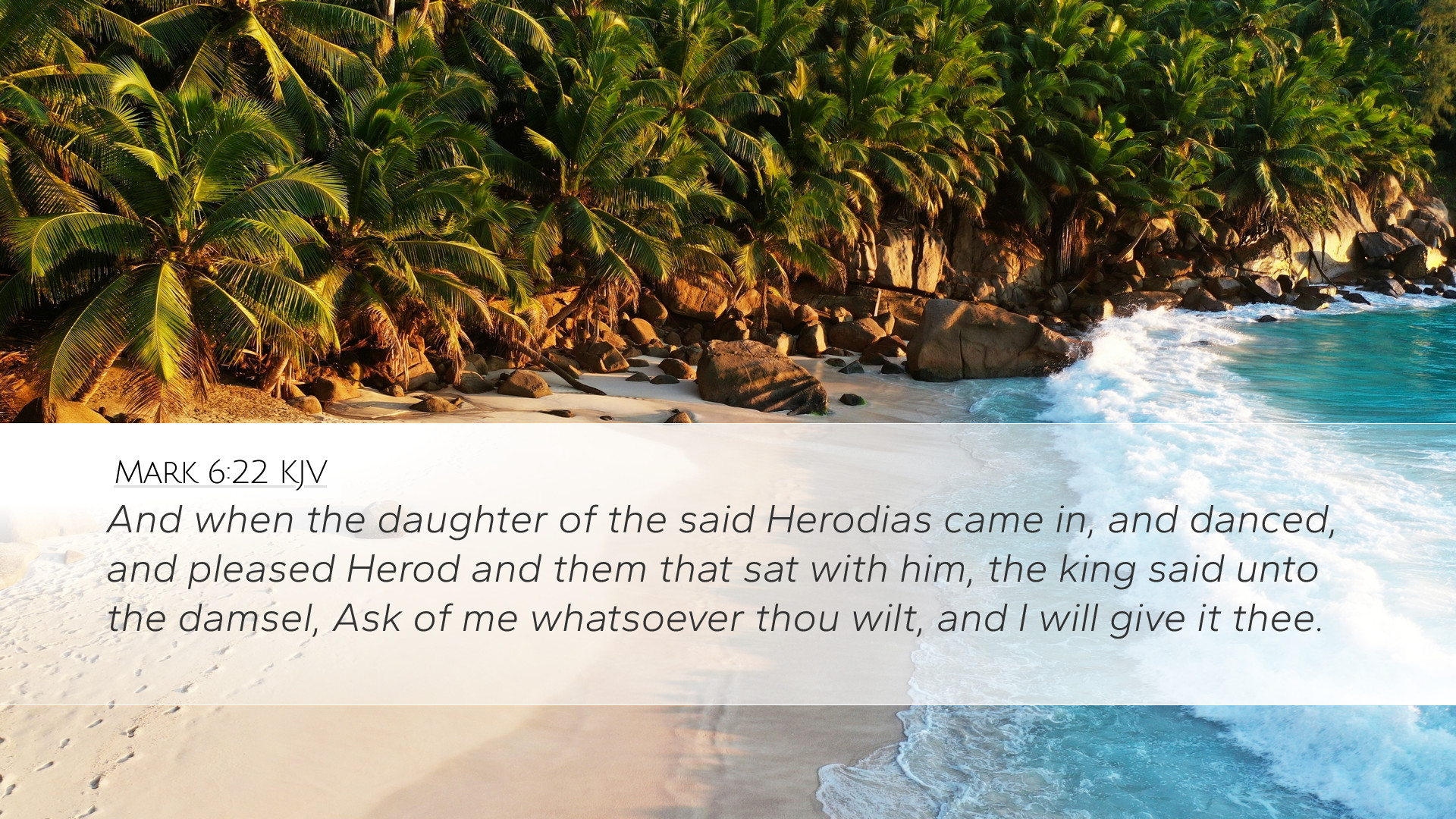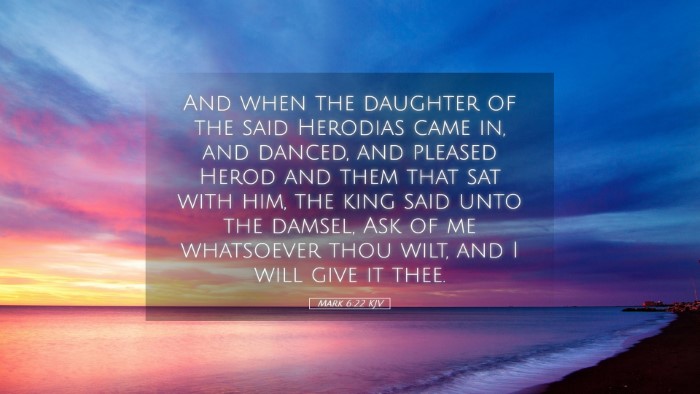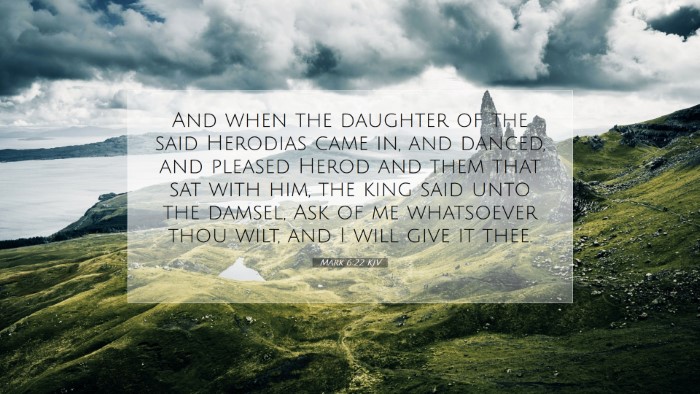Commentary on Mark 6:22
Mark 6:22 states: "And when the daughter of the Herodias came in, and danced, and pleased Herod and them that sat with him, the king said unto the damsel, Ask of me whatsoever thou wilt, and I will give it thee."
Contextual Background
This verse is situated in a significant narrative involving King Herod Antipas, the Tetrarch of Galilee, and the events leading to the martyrdom of John the Baptist. In understanding this passage, we must recognize the political and moral climate of Herod's reign, as well as cultural practices of the time.
The Setting
Herod Antipas had married Herodias, his brother Philip's wife, which was a source of scandal and public disdain. John the Baptist openly condemned this union, which ultimately led to his imprisonment and the eventual call for his execution. The actions within this verse take place during a banquet that Herod has organized, where the atmosphere is filled with revelry and intrigue.
Exegesis of the Verse
-
Dainty Dance of the Damsel:
According to Matthew Henry's commentary, the dancing of Herodias's daughter is a pivotal action that captures the attention of the king and his guests. It illustrates the theme of seduction and manipulation in this narrative. The dance is not merely an entertainment but a significant act leading to grave consequences.
-
Herod's Reaction:
Herod is described as being deeply pleased by the dance. Albert Barnes notes that this reaction reflects both his character and the corruption of his court. Such pleasure leads to a moment of impulsive promise, indicating Herod's vulnerability to flattery and desire.
-
The Offer:
Herod's statement, “Ask of me whatsoever thou wilt, and I will give it thee,” profound in its implications, reflects the king's desire to impress and perhaps his overestimation of his authority. Adam Clarke emphasizes that this statement reflects a king's power turned into folly when subjected to whim and emotional impulses.
Theological Insights
This verse provides rich theological insights into the human condition, particularly regarding the notions of power, desire, and moral failure. The interaction between Herod and the daughter of Herodias raises questions about the nature of authority and the consequences of moral compromise.
The Illusion of Power
Herod's promise echoes the illusion of power; he believes he can engage in a frivolous act of granting anything requested, unaware that his decisions will lead to dire consequences. As noted by Matthew Henry, this moment portrays how the sinful heart can lead one astray, even causing a ruler to pledge a fatal gift.
Impulsiveness and its Consequences
Herod's rash promise is a cautionary aspect of the narrative. Theologically, it serves as a reminder that decisions made in moments of emotional turmoil can have lifelong impacts. The promptness with which he offers anything to the maiden symbolizes the danger of impulsive decisions devoid of reflection and prayer.
Moral Reflections
For pastors and theologians, this passage serves as a sermon to the congregation about the power dynamics at play in moral choices. It encourages self-examination regarding how worldly pleasures can influence one's decisions.
Corruption within Power Structures
The example of Herod serves as a teaching moment about the potential for moral decay within positions of authority. Commentaries emphasize that true leadership should be grounded in righteousness, justice, and humility, contrary to Herod's behavior.
The Role of Women in the Narrative
The daughter of Herodias enters the scene as someone who is manipulated yet ultimately plays a crucial role in the tragedy that unfolds. This dichotomy presents useful discussion points concerning the roles of women within biblical narratives and the societal pressures they may face.
Conclusion
In summary, Mark 6:22 is a pivotal verse that opens a narrative filled with tension, immorality, and the stark realities of human fallibility. From the insights of Matthew Henry, Albert Barnes, and Adam Clarke, we glean the profound implications surrounding the theme of power, moral choice, and the dire consequences that follow when one succumbs to temptation and the whims of desire.
This verse not only admonishes but also invites deeper theological reflection on leadership, responsibility, and the authenticity required in our walk with God.


